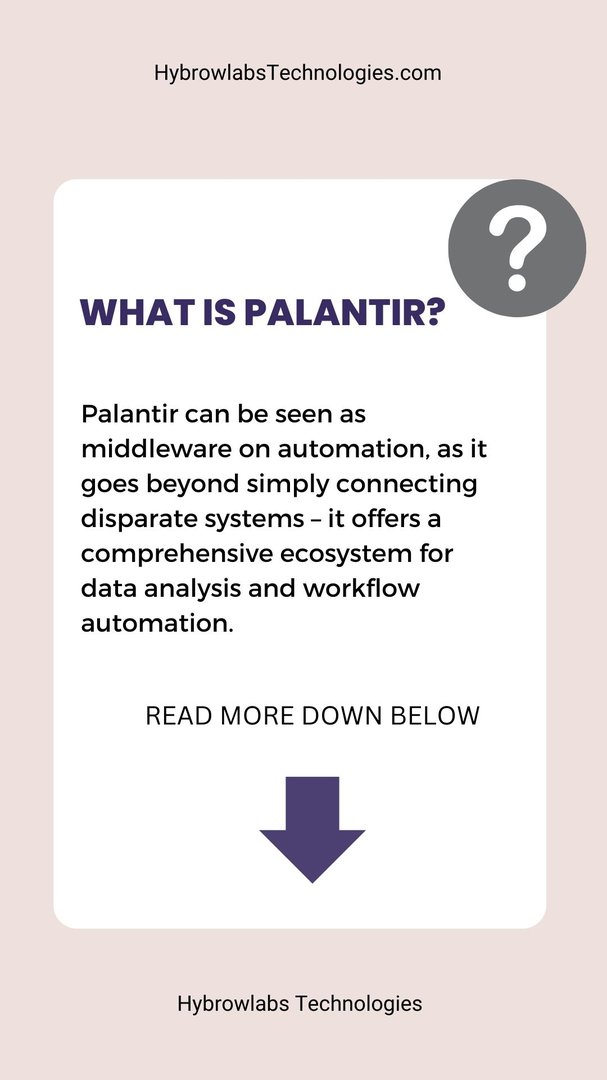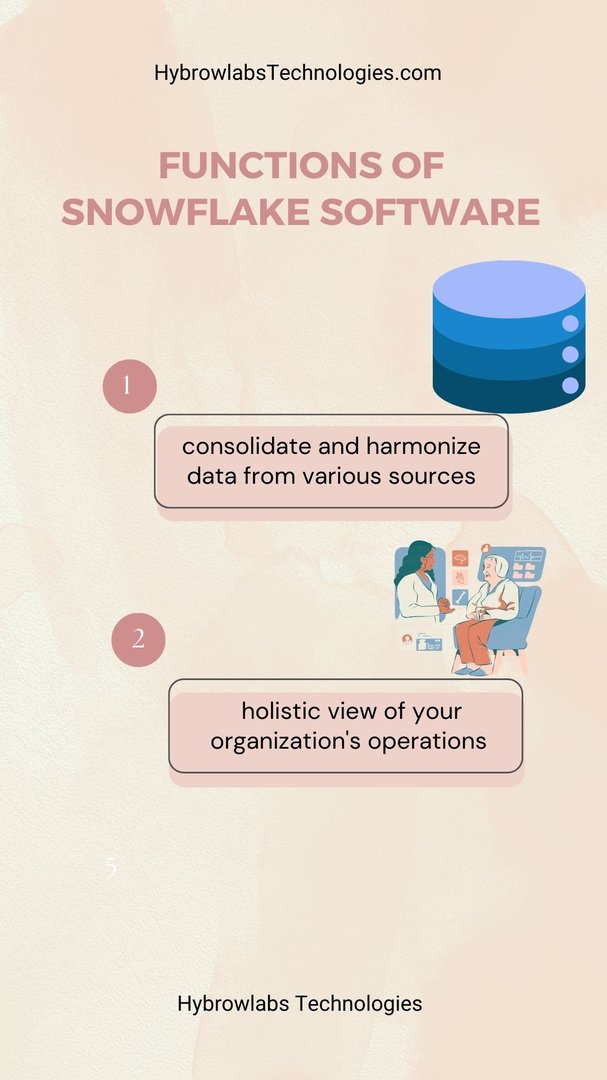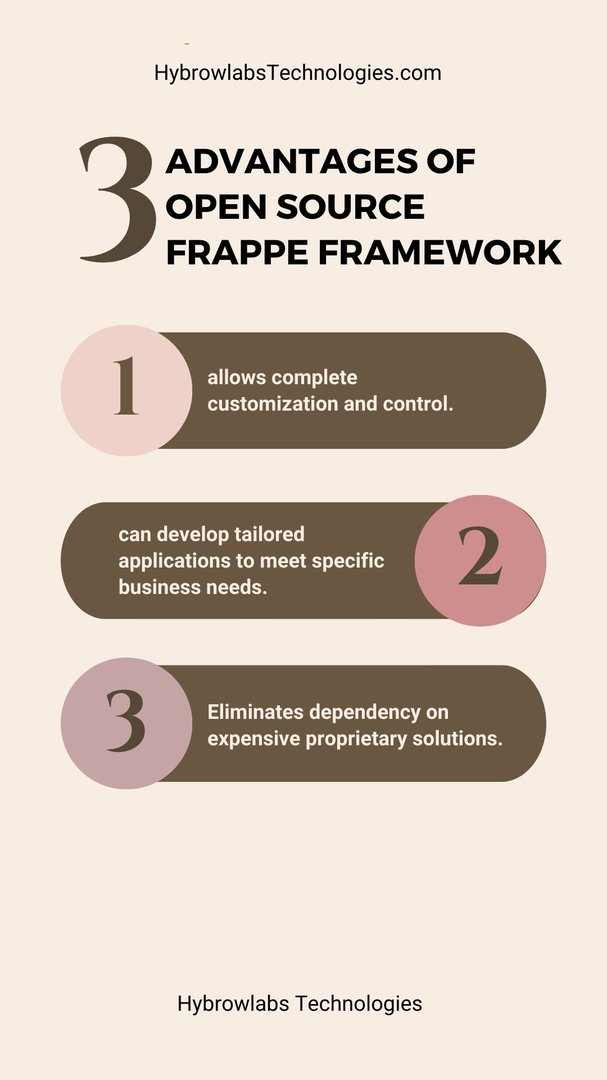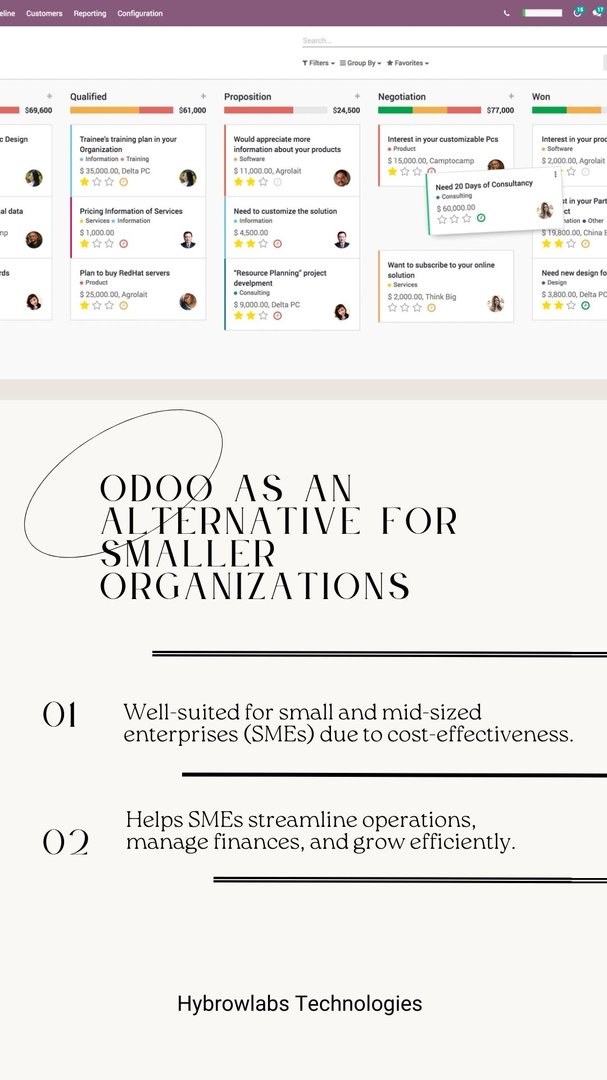Beyond Giants: Exploring Top Alternatives in Business Software and Enterprise Tech
We aim to shed light on these hidden gems – the alternatives to the Big Vendors that could revolutionize your organization's digital strategy.
In today's fast-paced business landscape, organizations are constantly seeking ways to stay ahead of the competition and streamline their operations. Often, this quest leads them to the well-known tech giants – the Big Vendors – such as SAP, Microsoft, Oracle, Workday, and NetSuite. These industry titans have dominated the enterprise technology space for years, offering comprehensive solutions that promise to address all business needs.
However, innovation knows no boundaries, and there is a world of lesser-known but highly impactful technological solutions out there that businesses might be overlooking. In this exploration, we aim to shed light on these hidden gems like Frappe – the alternatives to the Big Vendors that could revolutionize your organization's digital strategy.
Palantir: The Middleware on Automation

A. What is Palantir?
One such groundbreaking alternative is Palantir, a software vendor that specializes in providing a unique blend of interoperability, analytics, and artificial intelligence. Palantir can be seen as middleware on automation, as it goes beyond simply connecting disparate systems – it offers a comprehensive ecosystem for data analysis and workflow automation.
B. Interoperability and Analytics
Palantir's strength lies in its ability to seamlessly tie together multiple systems, including legacy ones that might be too complex or costly to replace. It acts as a bridge, enabling organizations to access a single source of truth and gain insights through analytics and artificial intelligence across their diverse technology landscape.
C. Use Cases in Government and Large Organizations
Palantir has been adopted by heavyweight entities like the U.S. government and the UK's National Health Service (NHS). These organizations recognize Palantir's unique capabilities in handling complex, multi-faceted systems and deriving actionable insights from them.
D. Palantir as a Solution for Complex Environments
If your organization operates in a highly complex environment with a multitude of systems, Palantir could be the key to unlocking the full potential of your existing technologies. It empowers you to harness the benefits of artificial intelligence, data analytics, business intelligence, and workflow automation while keeping your current systems intact.
Snowflake: Scaling Business Intelligence

A. Snowflake's Business Intelligence and Analytics Solution
Snowflake is another game-changer in the realm of business software. It offers a business intelligence and analytics solution that adds a layer of technology atop your existing systems, providing a single source of truth.
B. Providing a Single Source of Truth
Much like Palantir, Snowflake strives to consolidate and harmonize data from various sources, offering a holistic view of your organization's operations. This centralized data hub can be invaluable in making data-driven decisions.
C. Suitable for Organizations of All Sizes
Snowflake's versatility makes it suitable for businesses of all sizes, from small startups to large enterprises. Whether you're looking to enhance insights or maximize the value of your current technology investments, Snowflake can be the solution.
D. Leveraging Existing Systems for Business Value
Snowflake empowers organizations to extract more value from their existing technology stack without the need for extensive replacements. It's an ideal choice if you're seeking ways to optimize your existing systems rather than embarking on a complete overhaul.
Frappe Framework: Open Source Application Development

A. What is Frappe Framework?
- The Frappe Framework is an open-source application development framework that is helpful for every business with its low code erp system.
- It provides tools and features for building custom business applications.
- Known for its flexibility, it offers an alternative to proprietary application development platforms.
B. Advantages of Open Source Application Development
- Frappe's open-source nature allows complete customization and control.
- Organizations can develop tailored applications to meet specific business needs.
- Eliminates dependency on expensive proprietary solutions.
C. Modular Development for Adaptability
- Frappe follows a modular development approach, making it easy to add or modify features.
- Organizations can create applications that evolve with changing requirements.
- Ensures adaptability in dynamic business environments.
D. Frappe Framework for Diverse Business Sizes
- Suitable for organizations of all sizes, from startups to enterprises.
- Cost-effective and scalable, it accommodates the growth and complexity of businesses.
- Empowers organizations to build applications that streamline processes and enhance productivity.
Chat GPT and Open AI: Low-Cost Automation
A. Harnessing the Power of Chat GPT and Open AI
Chat GPT and Open AI are emerging technologies that offer remarkable potential for businesses looking to automate processes and enhance their operations.
These tools leverage natural language processing and artificial intelligence to provide solutions that were once considered futuristic.
B. Incremental Improvements Without Massive Replacements
One of the key advantages of Chat GPT and Open AI is their ability to deliver incremental improvements without the need for extensive technological replacements.
Instead of undertaking a full-scale overhaul of your existing systems, these tools can be integrated gradually, minimizing disruption and cost.
C. Enhancing Process Automation and Creativity
Chat GPT and Open AI can be used to automate routine tasks, freeing up employees to focus on more creative and strategic aspects of their work.
For instance, customer support chatbots powered by these technologies can handle common inquiries, allowing human agents to tackle complex issues.
D. The Versatile Applications of Chat GPT and Open AI
The versatility of Chat GPT and Open AI extends across various industries and functions.
In customer service, chatbots can provide 24/7 support, while in content creation, AI can generate articles, reports, or marketing copy.
These technologies can also assist with data analysis, personalization, and decision-making, making them valuable assets in diverse business scenarios.
ERPNext: A Game-Changer for Every Business
In today's competitive business landscape, finding the right software to manage operations efficiently is crucial. While giants like SAP and Oracle dominate the enterprise tech scene, ERPNext has emerged as a top alternative, offering a range of advantages for businesses of all sizes. Here's why ERPNext should be on your radar:
1. Accessibility for All Business Sizes:
ERPNext caters to businesses irrespective of their scale, from startups to established enterprises.
Its modular structure allows you to customize features to suit your specific needs, avoiding unnecessary complexity.
2. Cost-Effective Solution:
Unlike some giants with hefty price tags, ERPNext offers a cost-effective alternative without compromising on functionality.
It provides a robust set of tools at a fraction of the cost, making it an attractive option for budget-conscious businesses.
3. User-Friendly Interface:
ERPNext boasts an intuitive, user-friendly interface that doesn't require extensive training.
Employees can quickly adapt to the system, reducing downtime and enhancing productivity.
4. Open-Source Advantage:
Being open-source, ERPNext offers transparency and flexibility.
You have the freedom to modify the software to suit your unique business processes, fostering innovation.
5. Comprehensive Functionality:
ERPNext covers a wide spectrum of business functions, from accounting and inventory management to CRM and HR.
This all-in-one approach streamlines operations and reduces the need for multiple software solutions.
6. Cloud-Based Accessibility:
Cloud-based deployment ensures accessibility from anywhere, facilitating remote work and collaboration.
It also minimizes the burden of maintaining on-premises servers.
Salesforce Platform: More Than CRM
A. Salesforce as a Development Platform
Salesforce, often associated with customer relationship management (CRM), offers more than just CRM solutions.
It serves as a robust development platform, enabling organizations to create custom applications and solutions tailored to their specific needs.
B. Third-Party Applications on the Salesforce Platform
A unique feature of the Salesforce platform is its extensive ecosystem of third-party applications.
Businesses can tap into a wide range of pre-built applications that seamlessly integrate with Salesforce, providing solutions for various business functions.
C. Custom Development with Platform as a Service (PaaS)
Platform as a Service (PaaS) capabilities in Salesforce empower organizations to build and deploy custom applications without the complexities of managing infrastructure.
This flexibility allows businesses to adapt and evolve their technology stack as their needs change.
D. Creating a Best-of-Breed Solution with Salesforce
Salesforce's platform approach enables organizations to create a best-of-breed solution by combining different applications and components.
Whether it's sales, marketing, service, or other business functions, Salesforce's ecosystem offers a vast selection of tools to enhance efficiency and effectiveness.
Incorporating Chat GPT, Open AI, and the Salesforce platform into your technology strategy can provide innovative alternatives to traditional vendors. These solutions offer the potential for cost-effective automation, process improvement, and customization, ultimately helping businesses thrive in an ever-evolving digital landscape.
Odoo: The Open-Source ERP Alternative

A. Odoo as an ERP System
- Odoo is a versatile Enterprise Resource Planning (ERP) system.
- It offers an open-source solution for businesses of all sizes.
- Odoo's flexibility and capabilities make it a viable alternative to traditional ERP vendors.
B. The Benefits of Open Source Flexibility
- Open-source nature allows for customization and adaptation to specific business needs.
- Freedom from vendor lock-in and licensing costs.
- Access to a community of developers and users for support and enhancements.
C. Modular-Based Deployment for Easy Adoption
- Odoo follows a modular approach, enabling organizations to deploy only the necessary modules.
- This reduces complexity and implementation time.
- Modules cover various business functions, from CRM to accounting, making it suitable for diverse industries.
D. Odoo as an Alternative for Smaller Organizations
- Well-suited for small and mid-sized enterprises (SMEs) due to cost-effectiveness.
- Provides ERP capabilities without the extensive resources required by larger ERP solutions.
- Helps SMEs streamline operations, manage finances, and grow efficiently.
Comparison Table of Tech Alternatives For Vendors
| Feature | Odoo | ERPNext | Frappe Framework | Palantir | Snowflake |
| Type of Solution | Open-source ERP | Comprehensive Business Software | Open-source Application Dev. | Interoperability & Analytics | Business Intelligence & Analytics |
| Flexibility | Highly customizable, modular | Highly Customizable, All-in-One | Highly customizable, modular | Middleware with analytics | Layer on existing systems |
| Target Audience | Small to large organizations | Organizations of All Sizes | Small to large organizations | Large organizations and governments | Organizations of all sizes |
| Ease of Adoption | Modular-based for easy deployment | Intuitive and User-Friendly | Modular development for adaptability | Middleware for legacy systems | Layer on top of existing systems |
| Cost-Effectiveness | Cost-effective for smaller orgs | Excellent Value for Investment | Cost-effective for custom solutions | Varies depending on usage | Varies depending on usage |
| Customization | Highly customizable | Tailored to Business Needs | Highly customizable | Limited customization | Limited customization |
| Community Support | Strong open-source community | Active and Supportive Community | Strong open-source community | Limited community support | Limited community support |
| Vendor Lock-In | Avoids vendor lock-in | No Vendor Lock-In | Avoids vendor lock-in | May require some integration | No Vendor Lock-In |
| Primary Use Cases | ERP for various business functions | All-in-One Business Solution | Custom business applications | Data integration and analytics | Data analytics and BI |
| Scalability | Scalable for growing businesses | Scalable for All Business Sizes | Scalable for growing businesses | Scalable for large organizations | Scalable for organizations |
| Integration Capabilities | Integrates with various systems | Seamless Integration | Integrates with other systems | Integrates with multiple systems | Integrates with various systems |
| Machine Learning/AI | Limited AI features | Advanced AI Capabilities | Supports AI integration | Offers AI and analytics capabilities | Offers AI and analytics capabilities |
Conclusion
In the ever-evolving landscape of business software and enterprise technology, considering alternatives to the big vendors can be a strategic move. By exploring these innovative alternatives like Odoo, Frappe, and the ERPNext can empower your organization to optimize processes, reduce costs, and stay competitive in today's rapidly changing business environment.
While each solution offers distinct advantages, the Frappe Framework and ERPNext stands out as a top choice for organizations seeking highly customizable, open-source solutions tailored to their unique requirements. If you are a beginner to Frappe then we will suggest you to start with this beginner guide on Frappe Framework to make your own customized choices. To know more about ERPNext Development visit hybrowlabs official website and get customized solution for your every need.
Frequently Asked Questions (FAQs)
1. What are the key advantages of exploring alternatives to giants in business software and enterprise tech?
Exploring alternatives offers cost-effective solutions that can fit varying budgets. These alternatives often provide more customization and flexibility. Smaller providers may offer more personalized customer support.
2. How can I determine if an alternative business software or tech solution is suitable for my organization?
- Consider your organization's specific needs and budget.
- Assess the scalability and integration capabilities of the alternative.
- Look for user reviews and case studies to gauge real-world performance.
3. Are there any risks associated with choosing alternatives over well-established giants in the field?
- Some alternatives may have limited features or industry recognition.
- There might be concerns about long-term viability or support.
- Compatibility issues with existing systems could arise.
4. What are some notable examples of successful alternatives in business software and enterprise tech?
- ERPNext is a versatile all-in-one business solution.
- Frappe offers a suite of software products across various business functions.
5. How do I transition from an established giant's software to an alternative without disrupting my business operations?
- Plan the transition carefully, ensuring data migration and training are part of the process.
- Consider a phased approach to minimize disruptions.
- Leverage the support and guidance provided by the alternative software provider to facilitate a smooth transition.
No comments yet. Login to start a new discussion Start a new discussion